Belly button or navel piercing is a form of body modification that quickly became very popular among women (and a certain number of men).
It looks terrific on a flat, tight belly and it is a must-have summer accessory on the beaches worldwide. However, just like any other type of piercing, a naval piercing is not immune to complications, most commonly infections.
Infected Belly Button Piercing
The symptoms of an infected belly button piercing are noticeable right away and if treated on time, they can be eliminated rather easily. The symptoms include redness, swelling, pain, itching, and yellowish or green discharge. There may also be some bleeding and skin flaking. Not only is this infection extremely unattractive in terms of aesthetics, but it is also very uncomfortable and potentially dangerous if ignored.

If a person addresses this problem without any prior knowledge or experience, he/she might end up doing exactly what he/she is not supposed to. The first reaction to an infected piercing is often to take the jewelry out to enable the channel to clear up and breathe. This is wrong because touching and removing the jewelry causes even greater irritation and there is also a high probability that the channel will close up and the piercing will have to be repeated after the wound heals.
Alcohol is to be avoided, even though it seems like a logical remedy. It will only disinfect the area, not help it heal. Alcohol is not an antibiotic and it stings. The next idea almost everybody gets is to apply generous amounts of antibiotic ointment. This is wrong as well, as the ointment burns the skin and prevents drainage by clogging the channel. Like every wound, a piercing channel needs to breathe to heal.
The best thing to do is to do a little research or consult a piercing expert. They will probably recommend purchasing products such as a cleanser made especially for treating a piercing. A product called Bactine can be bought in drugstores and it is a very good solution for treating infected piercings and other wounds. This product can be used not only for treating the infection but also for preventing it if it is used regularly or as soon as the first signs of complications show.
As for the prevention of belly button piercing complications, it is vital to touch the piercing only with clean hands. It would be best to avoid touching the wound altogether, but if the piercing needs to be adjusted, it can be done with freshly washed hands. The piercing should be protected from pressure (like belts and tight jeans) and similar injuries.
Strong-scented beauty lotions like soaps, lotions, and perfumes can irritate the piercing. It is best to use antibacterial or baby soaps or products from a piercing salon. The area should be cleaned at least once a day. When changing the jewelry, the new piece must be properly sanitized as well.
- The most commonly identified organisms from body piercing infections include skin flora responsible for skin and soft tissue infections such as staphylococcus and streptococcus species though there are a few exceptions. There is a higher rate of incidence of pseudomonas infections when involving the cartilaginous ear and nasal structures.
- A national survey found that of the respondents, approximately 35%, reported having some form of body piercings with 14% endorsing piercings at sites other than the soft earlobe. Women, in general, are more likely than men to have body piercings.
- Individuals between the ages of 24 to 34 have the highest prevalence of body piercings. Of those individuals with piercings at sites other than the soft earlobe, 23% reported experiencing a medical complication.
- Conservative treatment of minor local infections includes warm compress and over-the-counter or prescription topical antibiotics such as bacitracin or mupirocin. Oral antibiotics such as cephalexin or clindamycin provide coverage for streptococcus and staphylococcus.
- Removal of the piercing jewelry is requisite, and the placement of a loose loop suture through the piercing can be used to maintain the piercing patency throughout the duration of infection treatment. Oral piercings tend to have a lower infection rate but when present are treatable with amoxicillin/clavulanate.
- Complications arising from body piercing infections are rare, and antibiotic treatment along with incision and drainage of an abscess is the cornerstone of therapy.
Sore Belly Button from Inflammation
Many people have experienced pain in their belly button area. Thus, if you are troubled by it now, know that you are not alone and that this is not something unique. The pain may be accompanied by redness, as well as irritation around the belly button itself.
Alternatively, the affected area may be covered with the pus of a rather unpleasant smell. All in all, there are numerous different reasons for different manifestations of this problem, some more serious than others.
The most common cause of belly button pain is caused by inflammation due to different things caught inside the area. Namely, clothing, dead skin, dirt, or some other materials may pile up in your belly button, producing a good ground for microorganism replication. Thus, bacteria, yeast, or some other infectious agents may trigger infections, causing you pain and discomfort in the area.
A more serious case involves a development of a cyst. This cyst, however, is prone to bursting after a certain period. This action most often results in foul-smelling discharge coming out of one's belly button.
Additionally, due to incorrect closing of one's umbilical cord during birth, urine, and mucus may get expelled through one's bellybutton and cause inflammation. In such severe cases, surgical intervention is a must to correct the mistakes made and do away with this uncomfortable problem.
As the list of possible reasons goes on, during winter, most of us prefer residing in dry and warm areas. These conditions, however, may cause our belly buttons to get dried out due to this lack of humidity. This situation may trigger inflammation of the skin, pain in the area, discomfort, and additional signs of irritation of inflammation.
Finally, those who had their navels pierced may have some problems as well. Namely, due to poor hygiene, lack of skill of the person who performed the piercing itself, or some other reasons, the piercing can get infected once different bacteria get inside one's piercing wound.
Possible Treatment for Bellybutton Pain
First and foremost, bear in mind that proper hygiene is the best prevention. That being said, gently clean your belly button every time you take a bath, removing all the dirt and clothes debris that might have entered. This will prevent the bacteria from causing you bellybutton infections and therefore the pain as well.
However, if you are already experiencing pain, you may let your organism deal with it on its own, as it usually does. Still, by eating fruit and vegetables rich in vitamin C, one may accelerate the healing process because this vitamin will boost your immunity.
Additionally, you may take some anti-inflammatory drugs in case of infections or clean the spot with a mixture of warm water and salt. Finally, cold compresses are known to help as well. If all else fails, seek medical attention as soon as possible.


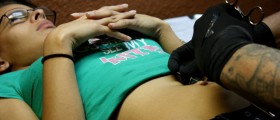
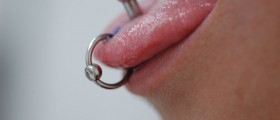
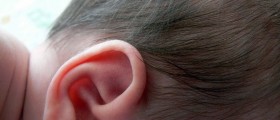

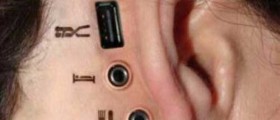

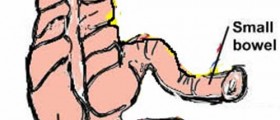
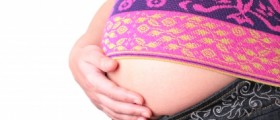

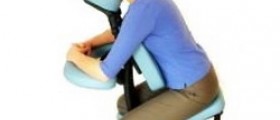
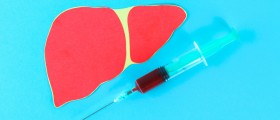
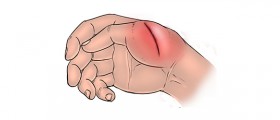
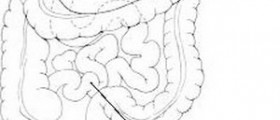
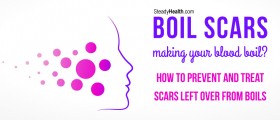

Your thoughts on this
Loading...